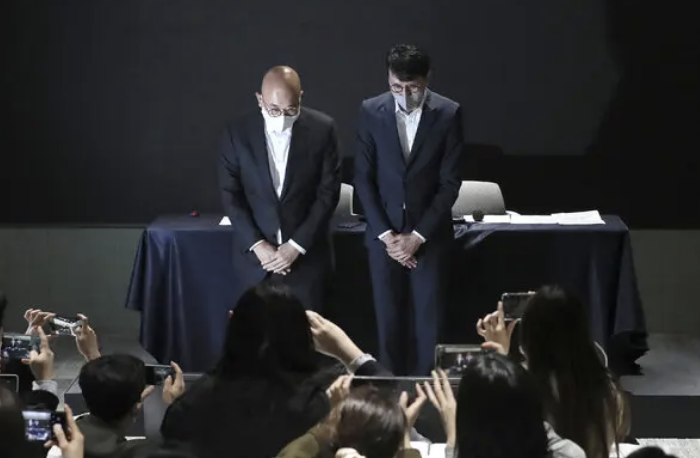Kakao Outage Sparks Public Anger
KakaoTalk app on a smartphone in Gimpo, South Korea. Photo: SeongJoon Cho/Bloomberg
South Korea’s biggest mobile chat app, Kakaotalk, suffered an outage over a span of multiple days due to a fire at its data center.
With more than ninety percent of South Korea’s population on KakaoTalk, its services range from online payments to log-in verification for other major websites, as well as additional services like transportation, entertainment, and gaming.
The outage that left the public without access to a wide range of services has caused public anger across the country, especially with the nation’s reliance on Kakao to proceed with day to day activities. Businesses were also affected, as many businesses use kakao as their formal form of communication and transactions.
With the public backlash of the outage, Namkoong Whon, the co-CEO of Kakao, has resigned. Now, Hong Eun-taek remains the sole head of the company. However, Whon will remain in the company to help oversee an investigation into the causes of the disruption and compensation drive.
At a news conference held in Pangyo, South Korea, Whon and Hong have released a formal apology for the incident. It has been said that Kakao would compensate users and businesses that were affected by the disruptions. The company also stated that it plans to invest to operate its own data center.
Namkoong Whon, left, and Hong Eun-taek, right, at a press conference at Kakao’s office in Pangyo, South Korea. Photo: Hwang Gwang-Mo/Associated Press
These disruptions highlighted the nation’s dependence on the corporation, thus sparking the conversation of the company’s monopolization in the industry.
Amidst the rising concerns of the company’s monopolization, the South Korean government released a statement that the dominance of Kakao’s services will be examined. President Yoon Suk-Yeol stated that Kakao’s services were “a fundamental national telecommunications network, and that if that market is distorted in a monopoly or severe oligopoly to the extent where it serves a similar function as national infrastructure, the government should take necessary measures for the sake of the people.”
Additionally Yoon mentions in a press briefing that although Kakao is operated by a private company, the network essentially appears to be a national communication network from the perspective of the people. The President also stated that the state would respond to revamp the system.
Kakaotalk has taken a financial and reputational hit from this incident, as shares of Kakao Corp. plunged and the public voiced concern on the reliance on its services.


